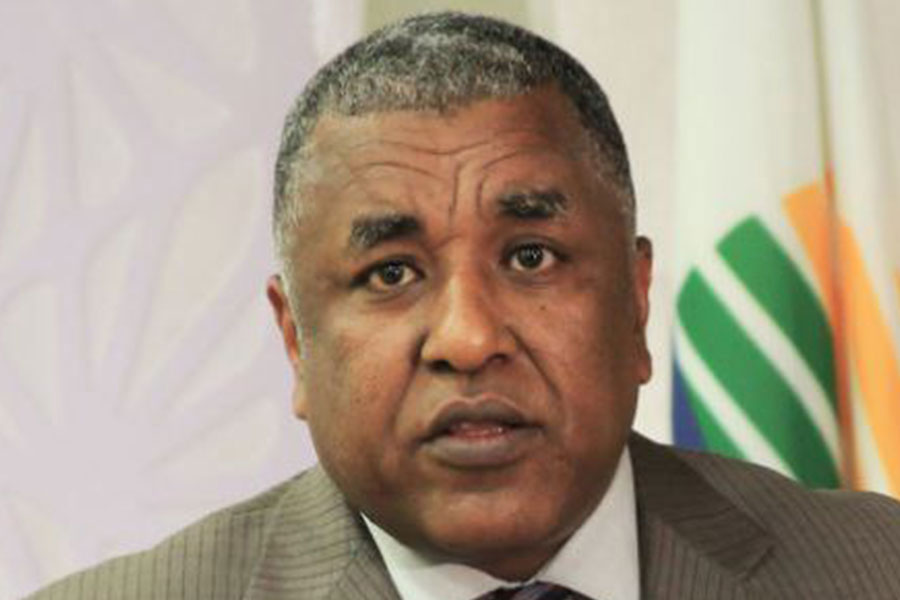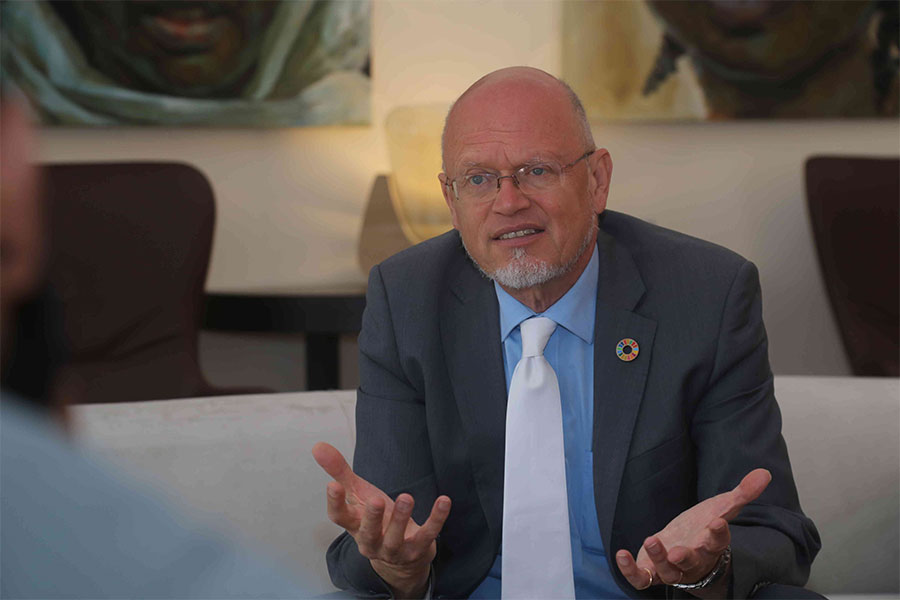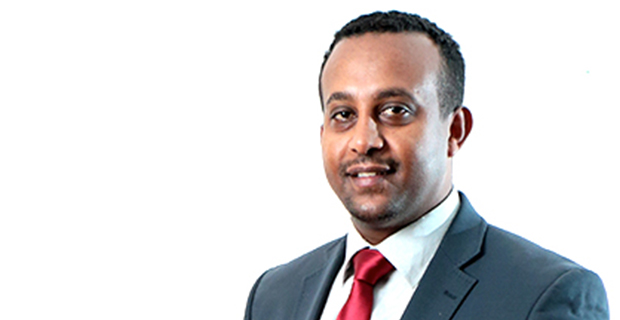
Fortune News | Oct 28,2023
Mar 23 , 2024
By Mohammed Yassin
Groundbreaking AI technologies are reshaping the fight against Tuberculosis (TB), a disease that still claims over 3,000 lives daily despite being preventable and curable. From Bangladesh's digital X-rays and AI-driven telemedicine to Pakistan's mobile health camps powered by AI hot spot detection, the integration of artificial intelligence in healthcare offers new hope. writes Mohammed Yassin, a public health physician and infectious disease epidemiologist with over 25 years of experience treating and researching tuberculosis, is a senior TB adviser at the Global Fund to Fight AIDS, Tuberculosis & Malaria. This article is provided by Project Syndicate (PS).
Groundbreaking new technologies seem to be emerging with increasing frequency. Since its launch in November 2022, OpenAI's generative artificial intelligence chatbot, ChatGPT, has become a global sensation, attracting over 100 million users and inspiring numerous imitators. The technology's fast-evolving capabilities have also commanded the attention of world leaders, dominating discussions at the United Nations Climate Change Conference in Dubai (COP28) and the annual meeting of the World Economic Forum in Davos.
It is not difficult to understand why. By harnessing AI tools developed by private companies like OpenAI, governments and civil society organisations could make significant strides toward tackling global challenges like climate change and economic inequality. They could also revolutionise how we fight infectious diseases, ensuring that life-saving care reaches those most need it. AI tools could play a major role in the global effort to end Tuberculosis (TB).
A preventable and curable disease, TB claims an average of more than 3,000 lives a day. Although the mechanisms of TB transmission are well understood, and highly effective treatment regimens – including new and improved medications – are available worldwide, TB still led to 1.3 million deaths globally in 2022.
The Global Fund to Fight AIDS, Tuberculosis & Malaria is pursuing public-private partnerships to develop and deploy innovative digital public health tools. During a recent trip to Bangladesh, I encountered a team of healthcare providers from the public and private sectors, along with local community partners, using digital X-rays, AI, and telemedicine to facilitate rapid TB screening. Patients whose X-ray results show signs of TB could immediately submit sputum samples for analysis and receive treatment at the community level, free of charge.
Similar initiatives are being launched around the world.
In Pakistan's Punjab province, the humanitarian aid organisation Mercy Corps uses AI tools to identify "hot spots" – remote or rural areas where TB cases might go undetected – and set up mobile health camps to deliver diagnostic and treatment services directly to residents. In Paraguay's Padre de la Vega prison, healthcare workers use Fujifilm ultralight portable X-ray machines and AI technology to provide rapid and precise TB screening.
Physicians at Cambodia's National Center for Tuberculosis & Leprosy Control in Phnom Penh bring portable Delft X-ray machines to nearby provinces to screen individuals unable to travel to the capital. In Indonesia, a new partnership between the Global Fund, Siemens Healthineers, and the country's national TB program aims to scale early detection efforts by combining deep-learning AI technology and X-ray analysis to enable radiologists to read scans remotely.
Targeted, innovative projects such as these are crucial to overcoming persistent inequities that fuel the spread of infectious diseases: poverty, conflict- and weather-related displacement, overcrowding, and limited access to health facilities. They are laying the groundwork for resilient health systems that meet every person's needs. In addition to TB screenings, Pakistan's mobile health camps offer essential services focusing on women and young children.
These examples underline the importance of advancing collaboration among companies, industry leaders, governments, and local health providers to devise innovative ways to address solvable problems like TB. That is why the Global Fund, contributing 76pc of all international financing to end TB, also allocates more than 150 million dollars annually to develop digital tools promoting equity and helping remote communities access critical healthcare services.
Much more is needed, however. Devising targeted, effective, and sustainable solutions requires active engagement with local communities to respond to a wide range of other public health threats, such as pandemics and antimicrobial resistance. It is crucial to have committed partners who can envision and develop cutting-edge digital tools. By leveraging AI to augment local medical expertise, we have an opportunity to overcome TB.
In a world brimming with innovative ideas and emerging technologies that until recently were beyond our imagination, ending this global scourge, and perhaps others, is finally within reach.
PUBLISHED ON
Mar 23,2024 [ VOL
24 , NO
1247]


Fortune News | Oct 28,2023

Radar | Sep 14,2024

Radar | Aug 25,2024

Viewpoints | Apr 10,2021

Commentaries | Aug 23,2025

Radar | Jul 28,2024

Exclusive Interviews | Apr 15,2023

Radar | Jun 22,2019

Featured | Sep 09,2019

View From Arada | Aug 16,2025

Photo Gallery | 173945 Views | May 06,2019

Photo Gallery | 164170 Views | Apr 26,2019

Photo Gallery | 154259 Views | Oct 06,2021

My Opinion | 136603 Views | Aug 14,2021
Editorial | Oct 11,2025

Dec 22 , 2024 . By TIZITA SHEWAFERAW
Charged with transforming colossal state-owned enterprises into modern and competitiv...

Aug 18 , 2024 . By AKSAH ITALO
Although predictable Yonas Zerihun's job in the ride-hailing service is not immune to...

Jul 28 , 2024 . By TIZITA SHEWAFERAW
Unhabitual, perhaps too many, Samuel Gebreyohannes, 38, used to occasionally enjoy a couple of beers at breakfast. However, he recently swit...

Jul 13 , 2024 . By AKSAH ITALO
Investors who rely on tractors, trucks, and field vehicles for commuting, transporting commodities, and f...

Oct 11 , 2025
Ladislas Farago, a roving Associated Press (AP) correspondent, arrived in Ethiopia in...

Oct 4 , 2025
Eyob Tekalegn (PhD) had been in the Governor's chair for only weeks when, on Septembe...

Sep 27 , 2025
Four years into an experiment with “shock therapy” in education, the national moo...

Sep 20 , 2025
Getachew Reda's return to the national stage was always going to stir attention. Once...

Oct 12 , 2025
Tomato prices in Addis Abeba have surged to unprecedented levels, with retail stands charging between 85 Br and 140 Br a kilo, nearly triple...

Oct 12 , 2025 . By BEZAWIT HULUAGER
A sweeping change in the vehicle licensing system has tilted the scales in favour of electric vehicle (EV...

Oct 12 , 2025 . By NAHOM AYELE
A simmering dispute between the legal profession and the federal government is nearing a breaking point,...

Oct 12 , 2025 . By NAHOM AYELE
A violent storm that ripped through the flower belt of Bishoftu (Debreziet), 45Km east of the capital, in...